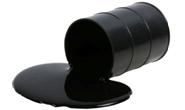Prices

January 24, 2016
Oil vs. Scrap Correlation – An Explanation
Written by John Packard
On Thursday evening’s issue of Steel Market Update we published an article about raw material prices. In the article, Peter Wright, a metallurgist, marketing specialist, contributing writer and Steel 101 instructor for Steel Market Update, referenced the relationship between WTI oil and scrap pricing. He said, “There is a close non causal relationship between the price of scrap and the price of oil.” One of our readers wanted to understand exactly what Peter meant when he asked us in an email:
“Must be me.I’m a pretty simple guy but also have a decent grasp of numbers,just not these numbers. If I take scrap at $180/ton or $.082/lb Vs oil at $30/bbl and divide one into the other, I can’t find any way to twist up this formula that equates to an answer of .927 – .937. I also understand the graph suggesting as you indicated that with oil troughing and scrap climbing, they have decoupled from each other as a leading indicator that scrap appears over valued currently and may be poised to back off. The graph tells a story, it’s the correlation of the numbers that doesn’t make sense to me.”
Peter responded to our readers question with the following explanation:
“It’s got nothing to do with the ratio of one to the other. Correlation is all about how they move relative to one another.
Wikepedia says this; “A correlation coefficient is a coefficient that illustrates a quantitative measure of some type of correlation and dependence, meaning statistical relationships between two or more random variables or observed data values.”
“A perfect correlation is 1.00 and can be positive or negative. For example there is a negative correlation between the price of scrap and the broad index value of the US $. If there is no correlation at all the calculation will come out at less than something like 0.4. It’s also important to avoid the conclusion that correlation is the same thing as causation. Sometimes it is as is the case described above and sometimes like oil and scrap it is not. All we are trying to do in the case of oil is to use it as a benchmark that has had a historical very close relationship. The reason doesn’t matter if it works. With any price or other quantitative measure you have no idea what it means if you don’t compare it to a historical pattern of it its own values and also to some other benchmark if possible. Oil works because it is a so much larger market on the global scale and the strong tendency has been for scrap to revert to the oil line when they get out of whack as they are today. A greater mystery than oil is the correlation between steel demand and some other benchmarks like the IP Index, or the Chicago Fed National Activity index. At the present time steel demand is much lower than it should be based on these benchmarks that have had some validity in the past.”







